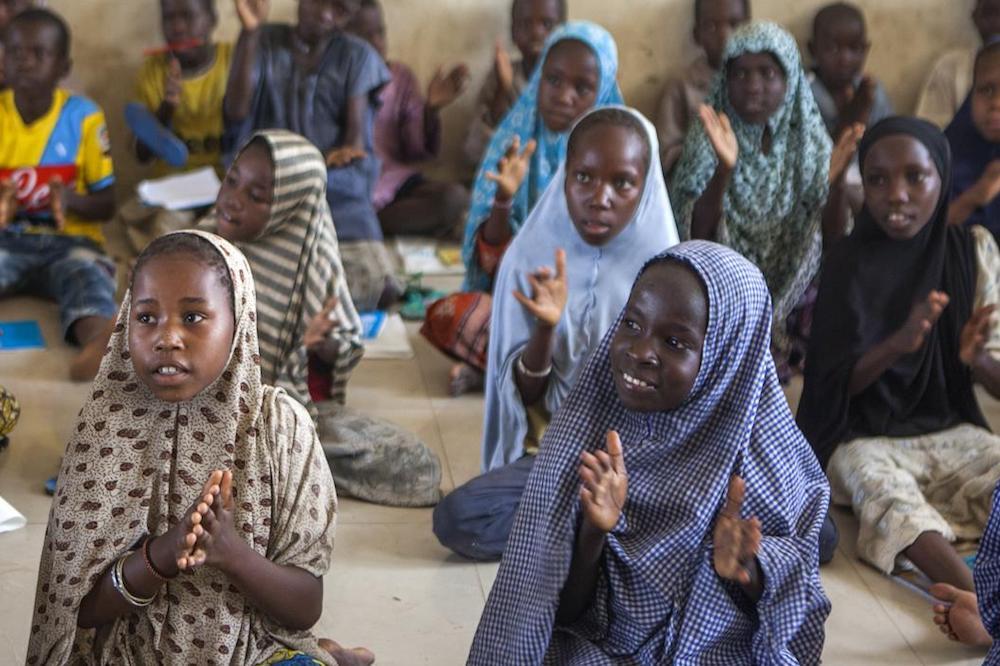
Children’s rights action needed urgently say Brown and Watkins
Child labour
CHILD labour, child marriage, child trafficking and discrimination, including against girls, is now so widespread that a new and urgent action is necessary – including exploration of whether an international children’s court could to stamp out violations of children’s rights.
On the eve of the 25th anniversary of the United Nations Convention on the Rights of the Child (CRC), UN Special Envoy for Global Education Gordon Brown and Overseas Development Institute Executive Director Kevin Watkins have called on the UN to consider the case for a human rights court for children to investigate in depth:
- 15 million child brides per year
- 15 million child labourers not in school
- 32 million girls prevented from going to school – half a million of whom have been trafficked
The pair revealed their plea at the #UpForSchool youth rally in Southbank Centre, London. The event, titled Our Future, Our Rights – Youth Rising #UpForSchool, was hosted by A World at School and ODI. Other guests included joint Nobel Peaxce Prize winner Kailash Yousafzai, Malala Yousafzai's school friends Kainat Riaz and Shazia Ramza, Camfed founder Ann Cotton and event host Ade Adepitan, the British TV presenter and Paralympian.
In a hard-hitting report, which will form the basis of a letter to UN Secretary-General Ban Ki-moon, Brown and Watkins stated:
“While no human rights treaty is more widely ratified than the CRC, and while governments are required to report on their compliance on children’s rights once every five years, just one in seven – 14 % of reports – are submitted on time and 33% are not submitted even a year later, while great weight is attached to the assessment of legislative provisions as distinct from the real enforcement of laws that enact the principles set out in the Convention.
“Only 10 countries have ratified optional protocol on communications to allow children and their representatives to bring cases before the Committee as part of the review process. Even then the average time lag between registration and final decision in cases taken up by the Human Rights Committee is three-and-a-half years with no legal obligation on states to review and reform policies even when they are identified as being in violation of international human rights obligations.
“It is time to consider the case for the establishment of an International Court for Children’s Rights. If we did so we would envisage an institution modelled on the European Court on Human Rights and the Inter-American Court on Human Rights, both of which have a remit to investigate individual petitions, independently monitor performance in member states, and review areas of concern.
“Four core areas in which the Convention and private actors should be held to legal account and, where appropriate, sanction are:
- Failure to investigate and apply appropriate criminal remedy to hazardous child labour, as defined under Article 3 of ILO Convention 182
- Failure to act on the elimination of all forms of child slavery as identified under the 1956 Convention on Slavery and subsequent instruments related to forced and bonded labour, child trafficking and other offences outlined in the Optional Protocol on the Sale of Children, Child Prostitution and Child Pornography
- Failure to enact and enforce legislation outlawing marriage before the age of 15, with associated measures aimed at changing the behaviours and practices that perpetuate forced marriage
- Failure to comply with the Optional Protocol on the Involvement of Children in Armed Conflict; and failure to protect children against the six grave violations of rights identified under Security Council Resolution 1612 (2005)
“In addition, we call for more countries to ratify the CRC’s Optional Protocol on Communications with its reporting system strengthened in five key areas:
- Progress towards the reduction of inequalities in areas such as health and education, with a particular focus on the most marginalised children, including the disabled
- The implementation of policies aimed at promoting high-quality education because of its potential role in combating child labour, forced marriage and other problems
- The design and implementation of legislation on child labour, forced marriage, child trafficking and child slavery
- The actions of states failing to comply with provisions on the six grave violations of rights
- Greater engagement with civil society organisations and the active encouragement of ‘shadow reports’ by organisations working with children
More news

